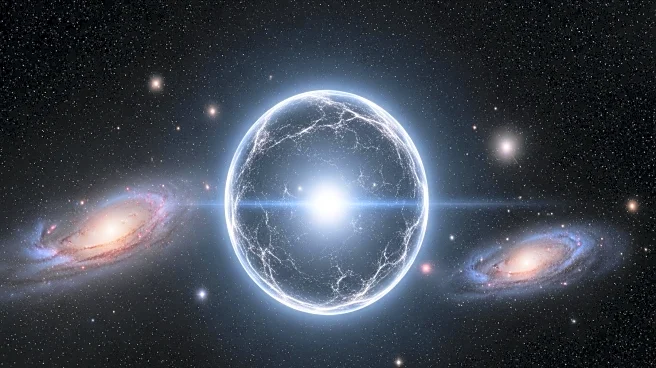What is the story about?
What's Happening?
Researchers from the University of Warsaw and Max Planck Institute for Gravitational Physics have proposed the gravitino as a new candidate for dark matter. Published in Physical Review Research, the study suggests that underground detectors like JUNO could detect these superheavy charged particles. Gravitinos, part of N=8 supergravity theory, are predicted to have masses near the Planck scale and unique electric charges, making them distinct from other dark matter candidates like axions and WIMPs.
Why It's Important?
The discovery of gravitinos as dark matter could revolutionize our understanding of fundamental physics, potentially leading to a unified theory of gravity and particle physics. This research challenges existing paradigms by suggesting that dark matter may be electrically charged, offering a new direction for experimental searches. Detecting gravitinos would provide evidence for physics near the Planck scale, a significant milestone in theoretical physics.
What's Next?
The JUNO detector, set to begin operations in late 2025, will play a crucial role in testing the gravitino hypothesis. Researchers will analyze data for unique signatures indicative of gravitino interactions. Success in detecting these particles could prompt the development of new detectors and methodologies, expanding the search for dark matter.
Beyond the Headlines
The interdisciplinary approach combining particle physics and quantum chemistry sets a new standard for research in fundamental physics. The study's implications extend to the broader quest for a unified theory, potentially influencing future theoretical and experimental work in the field.















